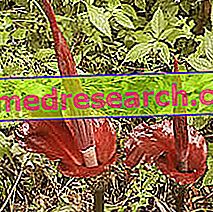
What is Ixiaro?
Ixiaro is an injectable vaccine. It contains the inactivated Japanese encephalitis virus (killed) as an active ingredient.
What is Ixiaro used for?
Ixiaro is used to immunize adults against Japanese encephalitis, a disease that causes inflammation of the brain. Japanese encephalitis can be fatal or can cause long-term disabilities. It is transmitted by mosquitoes and is more common in Asia, mainly in rural areas. Vaccination with Ixiaro is recommended in people at risk of exposure to the Japanese encephalitis virus in anticipation of a trip or because of their work.
The medicine can only be obtained with a prescription.
How is Ixiaro used?
Ixiaro should be administered with two injections into the shoulder muscle four weeks apart. Patients who are injected with the first dose of Ixiaro are advised to complete the cycle with the second dose. The duration of protection after vaccination is not known and the effect of a booster vaccination is not yet known.
Ixiaro must never be injected intravascularly. It can be administered subcutaneously in people who have bleeding disorders, such as low platelet count or haemophilia.
How does Ixiaro work?
Ixiaro is a vaccine. Vaccines act by "teaching" the immune system (the body's natural defenses) to defend itself against a disease. Ixiaro contains small amounts of the viruses that cause Japanese encephalitis, previously inactivated so as not to cause the disease. When a person is vaccinated, the immune system recognizes inactivated viruses as "foreign" and produces antibodies against those viruses. Later, if it is once again exposed to Japanese encephalitis viruses, the immune system will be able to produce antibodies more quickly that will help protect against the disease.
The vaccine is 'adsorbed'. This means that viruses are fixed on aluminum compounds to stimulate a better response. Unlike other Japanese encephalitis vaccines, which use viruses grown in mouse brains, Ixiaro viruses are grown in mammalian cells ("Vero cells") under laboratory conditions.
What studies have been carried out on Ixiaro?
The effects of Ixiaro were first tested in experimental models before being studied in humans.
Ixiaro was examined in one main study involving 867 healthy adults. In the study Ixiaro was compared to another vaccine against Japanese encephalitis containing viruses grown in the brains of mice. The ability of the two vaccines to trigger the production of antibodies (immunogenicity) against the Japanese encephalitis virus was measured, four weeks after the last injection.
What benefit has Ixiaro shown during the studies?
Ixiaro proved to be as effective as the comparison vaccine in triggering the production of antibodies against the Japanese encephalitis virus. Before vaccination, most of the people examined did not have levels of protective antibodies against the virus. Four weeks after the last injection, 96% of these people who had been given both Ixiaro doses had developed protective antibody levels (352 out of 365), compared to 94% of those given the comparator vaccine ( 347 out of 370). Antibody levels were far superior (on average more than double) in people treated with Ixiaro compared to those treated with the comparison vaccine.
What is the risk associated with Ixiaro?
The most common side effects with Ixiaro (seen in more than 1 patient in 10) are headache, myalgia (muscle pain) as well as pain and soreness at the injection site. For the full list of all side effects reported with Ixiaro, see the Package Leaflet.
Ixiaro must not be used in people who may be hypersensitive (allergic) to the active substance, to any of the excipients or to any residues present in the vaccine (for example, protamine sulphate). Subjects who have developed an allergic reaction after the first dose injection should not be given the second dose. The administration of the vaccine should be postponed in patients in severe acute febrile condition.
Why has Ixiaro been approved?
The Committee for Medicinal Products for Human Use (CHMP) decided that Ixiaro's benefits are greater than its risks for active immunization against Japanese encephalitis in adults. He also noted that the production of the only other vaccine in use outside of Asia for protection against Japanese encephalitis was stopped. The committee recommended that Ixiaro be given marketing authorization.
More information on Ixiaro
On 31 March 2009, the European Commission issued a marketing authorization for Ixiaro to Intercell AG, valid throughout the European Union.
For the full EPAR for Ixiaro, click here.
Last update of this summary: 04-2009.



